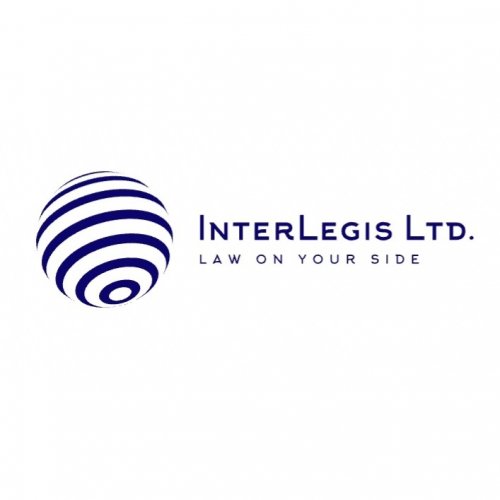Best Telecommunications and Broadcast Lawyers in Sofia
Share your needs with us, get contacted by law firms.
Free. Takes 2 min.
List of the best lawyers in Sofia, Bulgaria
About Telecommunications and Broadcast Law in Sofia, Bulgaria
Telecommunications and broadcast law in Sofia, Bulgaria, encompasses the regulations and statutes that govern the transmission of information and entertainment via electronic media and broadcast systems. As the capital and largest city, Sofia serves as the hub for the telecommunications industry in Bulgaria, providing a vital link in the national and international communications networks. The framework for telecommunications and broadcasting is heavily influenced by European Union directives, as well as local ordinances, ensuring that service providers operate fairly, competitively, and transparently while protecting consumer rights and data privacy.
Why You May Need a Lawyer
Seeking legal counsel in telecommunications and broadcast is often necessary for various reasons, including:
- Businesses entering the telecommunications market may need assistance with licensing and regulatory compliance.
- Companies involved in mergers and acquisitions can benefit from legal guidance on negotiating terms and ensuring transaction compliance.
- Individuals and companies facing disputes over intellectual property rights, such as content licensing and copyrights, can seek legal advice for resolution.
- Consumers experiencing issues with service contracts, billing disputes, or privacy breaches may require legal representation.
- Regulatory changes and compliance with data protection laws, such as the EU's General Data Protection Regulation (GDPR), often necessitate legal expertise.
Local Laws Overview
In Sofia, and Bulgaria at large, telecommunications and broadcast laws are shaped by both national legislation and European Union mandates. Key aspects include:
- The Electronic Communications Act: This outlines the regulatory framework for electronic communication services and networks, dictating licensing, frequencies, and competition rules.
- The Radio and Television Act: Governs broadcasting content and the operations of media agencies, including advertising limitations and content quotas.
- Consumer Protection Act: Ensures fair practice in the telecommunications sector, focusing on contracts, transparency, and prohibiting unfair commercial practices.
- Data Protection Legislation: Including GDPR compliance, which is particularly pertinent to electronic communications and the handling of personal data.
- Competition Protection: Laws that encourage a fair and competitive market environment, prohibiting dominant position abuses.
Frequently Asked Questions
What is the process for obtaining a telecommunications license in Bulgaria?
Licensing involves application to the Communications Regulation Commission (CRC), providing detailed business plans and compliance measures with national and EU regulations. The CRC assesses the application for network capabilities and adherence to competitive standards.
How are consumer rights protected in the telecommunications sector?
Consumer rights are safeguarded by the Consumer Protection Act, focusing on contract clarity, transparency of billing, and procedures for addressing disputes. Consumers can file complaints with the CRC if they face unfair practices.
What is the role of the Communications Regulation Commission?
The CRC is the authoritative body overseeing the telecommunications sector, ensuring compliance with laws, mediating disputes, and fostering competitive markets. It also manages frequency allocations and licenses.
How can I ensure my telecommunications company complies with GDPR?
Compliance involves conducting thorough audits of data handling practices, implementing technical safeguards to secure data, and adopting transparent policies regarding data collection and processing. Legal consultation can ensure adherence to all GDPR requirements.
What are the penalties for non-compliance with broadcasting regulations?
Penalties can include fines, license revocations, or the imposition of additional operational constraints. The severity depends on the nature and extent of the non-compliance with the Radio and Television Act.
Are there specific content regulations for broadcasters in Bulgaria?
Yes, broadcasters must ensure content respects cultural values and avoids inciting violence or discrimination. The Radio and Television Act also mandates quotas for local content and limits on advertising.
How are telecommunications mergers regulated?
Mergers require approval from the Commission on Protection of Competition which evaluates whether the transaction would result in undue market concentration or harm consumer interests. Legal advice is crucial to navigate these evaluations.
What recourse do I have if my telecommunications service is unsatisfactory?
Consumers can initially address issues directly with service providers, often leading to resolution. If unsatisfactory, complaints can be escalated to the CRC for mediation and potential penalties on the provider.
How are frequency allocations managed in Bulgaria?
Frequency allocations are managed by the CRC, ensuring efficient usage and minimal interference. They issue licenses based on technical considerations and market needs.
What legal structures are recommended for starting a telecommunications business in Bulgaria?
Options include limited liability companies or joint ventures with existing providers. A legal advisor can help choose the appropriate structure based on business strategy and regulatory requirements.
Additional Resources
- Communications Regulation Commission (CRC): The main body for industry regulations, licensing, and consumer complaints.
- Ministry of Transport, Information Technology, and Communications: Provides insights into policy-making and legislative updates.
- Bulgaria’s Commission on Protection of Competition: Oversees fair market practices and merger evaluations.
- European Union Telecommunications Framework: Offers guidelines and regulations applicable to all EU member states.
Next Steps
If you seek legal assistance in telecommunications and broadcast, begin by consulting with a legal expert specializing in this field. They can help navigate regulatory requirements, handle disputes, and advise on compliance measures. Prepare any documentation related to your issue or business venture, and have clear objectives for your legal consultation. Engaging with a local law firm familiar with Bulgarian and EU telecommunications practices will be invaluable for resolving legal matters efficiently and effectively.
Lawzana helps you find the best lawyers and law firms in Sofia through a curated and pre-screened list of qualified legal professionals. Our platform offers rankings and detailed profiles of attorneys and law firms, allowing you to compare based on practice areas, including Telecommunications and Broadcast, experience, and client feedback.
Each profile includes a description of the firm's areas of practice, client reviews, team members and partners, year of establishment, spoken languages, office locations, contact information, social media presence, and any published articles or resources. Most firms on our platform speak English and are experienced in both local and international legal matters.
Get a quote from top-rated law firms in Sofia, Bulgaria — quickly, securely, and without unnecessary hassle.
Disclaimer:
The information provided on this page is for general informational purposes only and does not constitute legal advice. While we strive to ensure the accuracy and relevance of the content, legal information may change over time, and interpretations of the law can vary. You should always consult with a qualified legal professional for advice specific to your situation.
We disclaim all liability for actions taken or not taken based on the content of this page. If you believe any information is incorrect or outdated, please contact us, and we will review and update it where appropriate.











